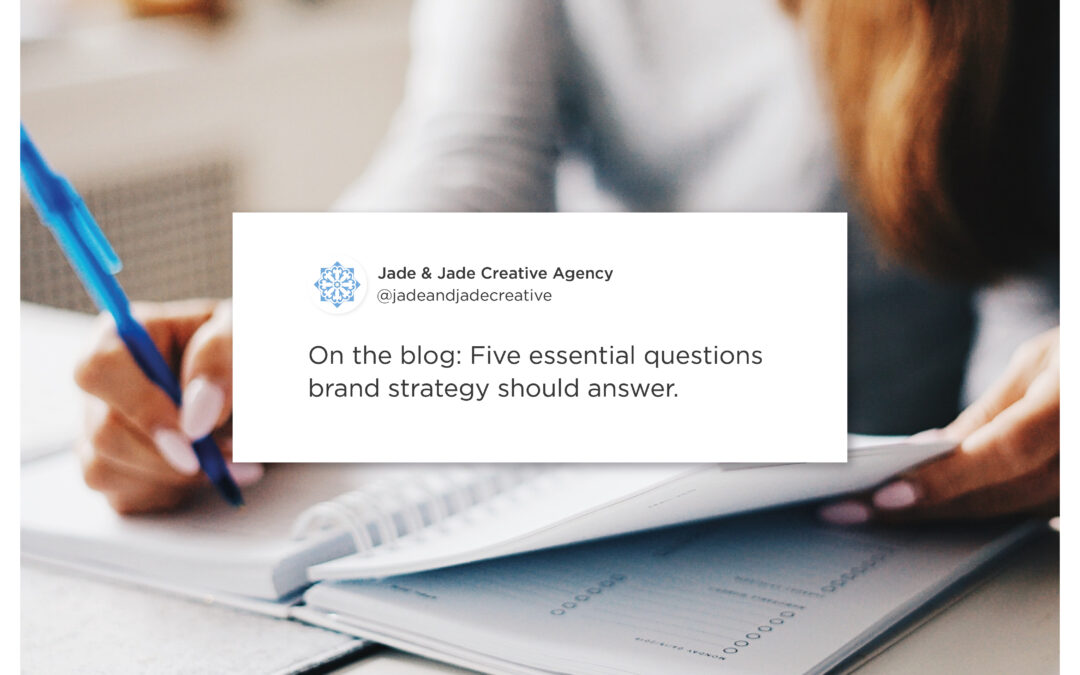For those of you who aren’t familiar with the term ‘brand strategy’ and what it could do for your business (ultimately, why you need one), then this is for you!
Whether you’re a well-recognised company or small-town business, you have a brand – your business is your brand. In the eyes of your customers, your business has a reputation, a personality, and (hopefully) something unique about you that makes them prefer you to your competitors. When all of the above is positive (i.e. a good reputation), the rewards are sweet. But if they aren’t quite so strong and fruitful, it might be time to look at outlining a brand strategy to better coordinate this important element of your business.
Put simply, a brand strategy is a long-term, holistic plan that outlines everything your brand (company) seeks to represent and achieve, while subsequently gearing your customers towards favouring your brand instead of your competitors. Having a brand strategy in place will allow you to (somewhat) decide how you want your brand to be received by the public, especially when it comes to reputation and business growth. We call this your Brand Identity, whilst the way your customers actually perceive you (despite trying to coordinate a certain reputation) is called your Brand Image.
Despite everyone interpreting things differently, having a Brand Identity (and fully knowing who you are and what you stand for on paper) is pivotal, as it gives structure to the perceptions that individuals create about your brand. How? Well, you can better coordinate your brand’s communications (and thus the reputation you’re putting out there) for your customers to then shape their understanding/thoughts about your brand according to.
When creating a brand strategy for your business, there are 5 essential questions that your strategy must answer in order to be effective and fruitful. Let’s break them down:
- Why are we here?
This is your story – the story of who or what your brand is (maybe include something personal if there is anything), what it stands for, what you are trying to achieve and what your purpose is. Stories are emotive, captivating and can often be the reasons why certain customers choose certain brands. This can also be a tough element to iron out, but the more authentic and compelling your story is, the more likely you are to evoke a spark within your customers, as well as create an experience for them when they support your brand.
- What do we do / how do we do it?
Perhaps one of the easier questions to answer: this refers to what services or products your brand is offering, as well as the process of how you run things. So if every customer’s purchase is going to end with a friendly smile, that needs to be stipulated and enforced – and slowly but surely your customers will come to know and ‘learn’ this about you (admiring it about your later on).
- Who do we do it for?
Cue your audience! Considering the success of your brand is 100% dependant on the customers who support you, it’s important to know who your customers are. Knowing what your customers are looking for in your products/services (their expectations), what problems they’re facing that make them need your product/service, any problems they have with your product (criticism), as well as who they are as collective individuals (their interests, demographics, etc.), will better inform you on how to bridge any gaps, create solutions (possible gaps in the market), but most importantly, it will help you better understand how to serve your customers in a way that will be appealing for them, and subsequently lucrative for you.
- What makes us different?
This is commonly referred to as your Unique Value Proposition, or USP, and stands to encompass what sets you apart from your competitors – why should your customers choose your brand? Why should they buy your product/service instead of a competitors? This is basically nailing down everything that makes you special, giving your customers a valuable (and sometimes emotional) reason to support you, and using that distinctiveness to draw your customers in.
- What is our personality?
The most attractive brands are the ones that customers can relate to – the ones they think of like friends. To achieve this, outlining your brand’s personality is vital – yes, your brand must have a personality much the same as how you have a personality. Decide if you want your brand to be quirky, professional, sophisticated, sincere, rugged – and see to it that this prevails in all brand communications and touch points. Your customers want to get to know your brand as they would a friend. They want to feel more connected, less alienated from the inner-workings of your business, and ultimately want to build a relationship with you beyond the conventional browse-and-purchase. This will also help your customers find more confidence to support your brand long-term.
Final words of wisdom: With your brand strategy, consistency is key. If customers are presented with the same, consistent information about a brand at all potential touch points, their perceptions about that brand will be shaped accordingly. However, the minute there is any inconsistency (one minute you’re speaking in a quirky manner, and the next it’s very cold-cut and professional), you will create confusion about who your brand is and what it stands for. Your customers will become unsure what to think, and will eventually draw their own conclusions about your brand – ones that likely won’t coincide with what you’re trying to achieve.
However, some things are easier said than done. If you’re struggling to develop your brand strategy yourself, we are more than happy to help! Just dial 073-302-1082, or pop us an email on tiffany@jadeandjade.co.za. Don’t let the fear of striking out stop you from playing the game!


Recent Comments